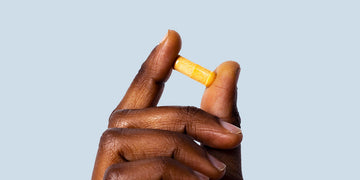I’m trying to conceive and keep getting UTIs. What should I do?

Trying for a baby can take a toll on you and your body — from tracking your ovulation and carefully planning when to have sex to avoiding yeast infections, UTIs, and other vaginal infections. While you’re trying to conceive, you may experience more urinary tract infections (UTIs) as a result of having more sex. Let’s dive into why you experience more UTIs when trying to conceive, the potential risks of conceiving with a UTI, and how to reduce and manage the discomfort.
Why am I getting more UTIs while trying to conceive?
Getting more UTIs while trying to conceive is very common and typically not something to worry about. Sexual intercourse is one of the most common causes of a UTI, especially if you are having sex more frequently. This is because during sex, bacteria from the genitals — or the mouth in the case of oral sex — can reach the urethra and get into the urinary tract causing uncomfortable infection. So, it makes sense that if you’re getting busy on the regular, you could get more UTIs than normal.
Do UTIs impact fertility?
Simply put, no. While infertility can be linked to genital and urinary infections, UTIs are usually not to blame. Most commonly, infections such as chlamydia and prostatitis can have the most negative impact on fertility when not treated properly. It’s important to note that UTIs left untreated during pregnancy can cause further infection and complications.
If you’re trying to conceive and keep getting UTIs, feel free to contact your primary care physician for additional support or additional treatments.
Vaginal and urinary care while trying to conceive
While UTIs can cause pain and discomfort, they are usually relatively manageable with the right treatment and preventative practices.
Shop the article
Pee after sex (every time!)
It is also a good idea to pee after sex. Friction during intercourse can cause either focal inflammation or transient exposure to bacteria. Urinating after sex can help to clear this out, and hydration helps to flush away any bad bacteria.
Hydrate hydrate hydrate
Diluting your urine can help to flush out lots of badness in your urinary system. Take care of your gut health Managing any issues you may have with constipation can also help to reduce the amount of bad bacteria that can enter your urinary system.
Embrace breathable underwear
It’s also worth considering looking for alternatives to thongs or non-breathable fabrics as they can hold moisture and prevent adequate airflow.
Try a UTI supplement
Taking cranberry and D-mannose daily has been shown to make your bladder a less friendly environment for bad bacteria to grow and flourish. If you’re looking to incorporate an easy-to-use vitamin to help protect against UTIs, our UTI Daily Protection Supplement can help make UTIs less frequent. Designed by expert urologists, our UTI Daily is formulated with D-mannose, cranberry, turmeric, and Vitamin C. For more info on how you can help prevent UTIs, check out our guide to our UTI Daily.
Keep Reading

How can I prevent a UTI?
Jan 29

A guide to our UTI Daily Protection Supplement
Dec 1

UTIs and sex: Everything you need to know
Sep 20










